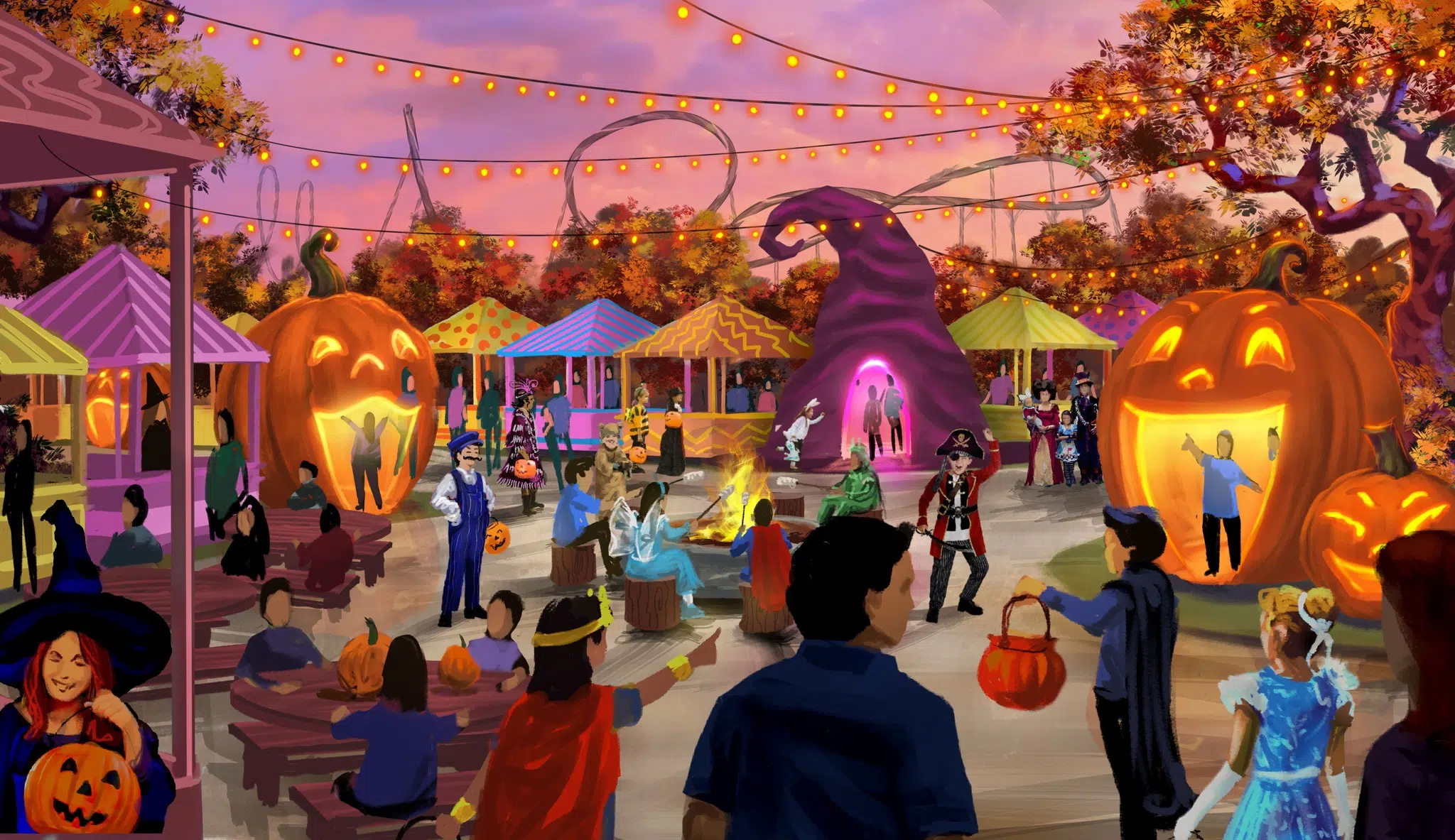
Storyboard of proposed "Tricks and Treats" Halloween event (ValleyFair)
Halloween originated from the ancient Celtic festival of Samhain (pronounced “sow-win”), celebrated around 2,000 years ago. Samhain marked the end of the harvest season and the beginning of winter, which was believed to be a time of death and darkness. The Celts believed that on Samhain, the veil between the living and the dead was at its thinnest, allowing for communication with ancestors and spirits.
Celtic Traditions
During Samhain, the Celts:
- Lit bonfires: To ward off malevolent spirits and to symbolize the light of life.
- Wore costumes: To disguise themselves from ghosts and spirits, often dressing up as animals, spirits, or supernatural beings.
- Told fortunes: Divination rituals were performed to predict the future and communicate with the dead.
- Made lanterns: From turnips, potatoes, and other root vegetables, which were later replaced with pumpkins in North America.
Roman Influence
When the Roman Empire conquered Celtic lands, they brought their own festivals and traditions, including Feralia, a festival honoring the dead, and Pomona, a harvest festival. These influences blended with Samhain, shaping the holiday’s evolution.
Christianization
As Christianity spread throughout Europe, the early Christian church attempted to replace pagan traditions with Christian holidays. In the 7th century, Pope Gregory III designated November 1 as All Saints’ Day, a day to honor all Christian saints and martyrs. The evening before All Saints’ Day became known as All Hallows’ Eve, later shortened to Halloween.
Modern Celebrations
Over time, Halloween evolved into a secular holiday, incorporating many of its ancient Celtic and Roman traditions. Today, people around the world celebrate Halloween with:
- Costumes: Dressing up in various costumes, often inspired by mythology, folklore, and popular culture.
- Trick-or-treating: Going door-to-door, asking for treats, and sometimes playing pranks on neighbors.
- Decorations: Using jack-o’-lanterns, cobwebs, and other spooky decorations to create a festive atmosphere.
- Parties: Hosting or attending Halloween-themed parties, often featuring scary movies, games, and music.
In summary, the origins of Halloween are rooted in the ancient Celtic festival of Samhain, which blended with Roman and Christian traditions over time, eventually evolving into the modern secular holiday we know today.




Comments